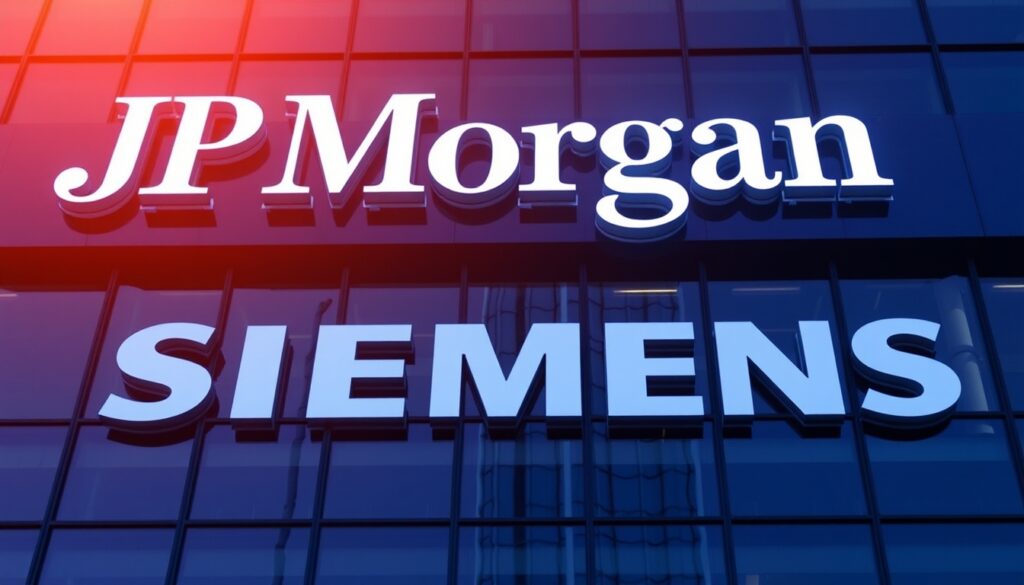Siemens and JPMorgan’s Onyx blockchain have completed a digital commercial paper transaction, marking a major milestone for blockchain’s integration into traditional finance.

In a significant development for blockchain technology in traditional finance, German industrial giant Siemens AG recently partnered with JPMorgan’s Onyx blockchain platform to issue and settle tokenized commercial paper. The transaction marked a crucial milestone in the evolving world of digital asset issuance and financial settlements on blockchain rails, further solidifying blockchain’s place in the future of banking.
Siemens and Onyx Collaboration
On September 13, Siemens issued €100,000 worth of digital securities under Germany’s Electronic Securities Act (eWpG), a legal framework that allows for the issuance of digital assets without the need for paper certificates. Just three days later, the digital securities were fully redeemed, demonstrating the speed and efficiency of blockchain technology.
The commercial paper issuance and settlement took place through JPMorgan’s Onyx network using the JPM Coin System. The asset transfers were executed using SWIAT’s private blockchain network, which utilizes a delivery-versus-payment (DvP) mechanism. This method ensures that payment and asset transfer occur simultaneously, reducing the risks traditionally associated with such transactions. Impressively, the entire process took just 93 seconds from trade confirmation to final settlement.
DekaBank, a prominent player in German banking, also played a vital role by acting as the regulated crypto securities registrar within the SWIAT network, ensuring compliance with Germany’s electronic securities regulations.
A Major Step for Blockchain in Traditional Finance
The collaboration between JPMorgan’s Onyx platform and SWIAT represents an important shift in how blockchain can be applied to traditional financial systems. By leveraging the distributed ledger technology (DLT) behind blockchain, Onyx and SWIAT aim to shorten value chains, increase transaction speed, and provide greater flexibility for commercial banks.
This transaction also underscores JPMorgan’s leadership in integrating blockchain into traditional financial products. JPMorgan has been heavily involved in blockchain technology for years, with Onyx being one of the industry’s most advanced blockchain platforms for financial settlement. The Onyx network, powered by the JPM Coin, has experienced significant growth since its inception. According to Umar Farooq, JPMorgan’s former head of Onyx and current co-head of Payments, the platform has handled billions of U.S. dollars in transactions daily, thanks to its innovative blockchain-based settlement technology.
Tokenization and the Future of Finance
The tokenization of real-world assets, like commercial paper and bonds, is a rapidly expanding area within the financial world. Tokenization allows traditional financial instruments to be represented digitally on blockchain platforms, offering greater liquidity, transparency, and efficiency in financial markets. Major financial institutions, including JPMorgan, are at the forefront of this revolution, utilizing blockchain technology to streamline processes that were previously complex and time-consuming.
JPMorgan CEO Jamie Dimon, while skeptical of cryptocurrencies, has been a strong advocate of blockchain’s underlying technology, referring to it as merely a “database” but acknowledging its significant potential for traditional financial applications. His vision aligns with JPMorgan’s approach of using blockchain not for speculative assets but for enhancing the efficiency of everyday financial transactions, such as those carried out through the Onyx platform.
Conclusion
The collaboration between Siemens, JPMorgan’s Onyx blockchain, and SWIAT is a critical step in the evolution of digital finance. With blockchain technology continuing to gain traction among traditional financial institutions, the issuance and settlement of tokenized commercial paper could soon become the norm, transforming how financial markets operate. The efficiency, security, and transparency that blockchain offers make it an attractive solution for banks looking to modernize their operations.
Disclosure: This article is for informational purposes only and does not constitute financial advice. Always conduct thorough research and consult with financial experts before making investment decisions.
